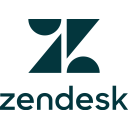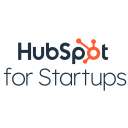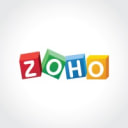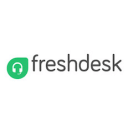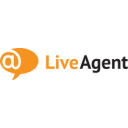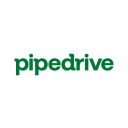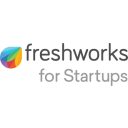Zendesk vs Hubspot compared: Which one is better?
- 01Zendesk vs HubSpot: overview
- 02What's the difference between Zendesk and HubSpot?
- 03Zendesk pros and cons
- 04HubSpot pros and cons
- 05Zendesk compared to HubSpot
- 06HubSpot compared to Zendesk
- 07Features comparison
- 08Zendesk vs HubSpot: Which is the best for your business?
- 09Promotions on AI Customer Support software
- 10Alternatives to Zendesk & HubSpot
Access up to $50,000 savings on Zendesk & $7,000 on HubSpot
HubSpot
75% off for 1 year
Access up to $50,000 savings on Zendesk & $7,000 on HubSpot
Feeling overwhelmed by the task of managing your customer support and relationship management? The solution lies in customer support and CRM tools, and two leading options in this arena are Zendesk and HubSpot. These tools simplify the process of streamlining customer interactions, managing relationships, and optimizing your customer support efforts, ultimately helping you enhance customer satisfaction and drive growth.
Zendesk and HubSpot are both renowned names in the world of customer support and CRM solutions. To help you determine which one suits your business better, let's delve into a comprehensive comparison of their key features, advantages, drawbacks, and pricing models. We'll also highlight the main distinctions between Zendesk and HubSpot, empowering you to make an informed decision that aligns perfectly with your business's specific needs. Let's get started!
Zendesk vs HubSpot: overview
Zendesk and HubSpot are prominent contenders in the customer support and CRM platform landscape, each offering unique features and capabilities to cater to diverse user preferences and business requirements.
Zendesk is renowned for its versatile customer support tools and robust ticketing system. It excels in managing customer inquiries, providing a seamless support experience, and offers various integrations for a tailored approach to customer service. On the other hand, HubSpot is celebrated for its all-in-one CRM platform, encompassing marketing, sales, and customer service tools. It offers a unified view of customer interactions, powerful marketing automation, and comprehensive analytics, making it a versatile choice for businesses seeking a holistic approach to customer relationship management.
In the Zendesk vs. HubSpot comparison, we'll dive deep into the specific strengths and offerings of each platform to assist you in making an informed decision based on your customer support and CRM needs.
What's the difference between Zendesk and HubSpot?


The first and most fundamental difference lies in the primary focus of each platform. Zendesk is designed as a customer service and support platform. It excels in features like ticketing systems, workflow configurations, and a self-service portal that includes a knowledge base and community forums. These features make it an excellent choice for businesses that prioritize customer service and are looking for specialized tools to manage customer interactions effectively. HubSpot, on the other hand, is an all-in-one inbound marketing, sales, and customer service platform. It shines in areas like lead capture, email marketing, and social media monitoring, making it ideal for businesses that want a comprehensive tool to manage not just customer service but also sales and marketing.
Secondly, let's talk about customizability and extensibility. Zendesk offers a high level of customizability, allowing businesses to tailor the platform according to their specific needs. This is particularly beneficial for companies that have unique customer service workflows or specialized requirements. HubSpot is not as customizable in its sales and marketing plans, but it excels in extensibility. With over 1,000 different applications in its directory, including more than 100 service-based applications, HubSpot provides a more versatile platform for businesses looking for a broader range of functionalities beyond customer service.
Lastly, pricing is another area where these two platforms differ significantly. Zendesk offers more budget-friendly options, especially if your primary need is customer service. Its pricing plans are segmented to cater to different sizes and types of customer service teams. HubSpot, while offering a more comprehensive suite of tools that cover marketing, sales, and customer service, tends to be on the pricier side. However, it does offer a freemium model, allowing businesses to start with basic tools and then scale as needed.
In summary, Zendesk is your go-to platform if you're looking for specialized, customizable customer service tools, while HubSpot offers a more comprehensive, albeit pricier, suite for managing sales, marketing, and customer service.
Zendesk pros and cons
What are the advantages of Zendesk?
- User-friendly interface: Zendesk provides an intuitive and user-friendly interface that makes it easy for both agents and customers to navigate. This can lead to increased productivity and better customer experiences.
- Robust ticketing system: Zendesk's ticketing system is one of its core strengths. It helps organizations efficiently manage customer inquiries and support requests, ensuring that nothing falls through the cracks.
- Customization and scalability: Zendesk offers a high degree of customization, allowing businesses to tailor the platform to their specific needs. It's also scalable, making it suitable for both small businesses and large enterprises.
- Multi-channel support: Zendesk allows you to manage customer interactions across various channels, including email, chat, social media, and phone, from a single platform. This streamlines communication and ensures consistency.
- Reporting and analytics: Zendesk provides robust reporting and analytics tools, giving organizations valuable insights into their customer support operations. This data can be used to make informed decisions and improve customer service.
What are the disadvantages of Zendesk?
- Cost: Zendesk can be relatively expensive, especially for smaller businesses or startups. Pricing varies based on the features and the number of users required.
- Learning curve: While Zendesk is user-friendly, there can still be a learning curve, particularly when setting up advanced features or integrations.
- Limited native CRM: Zendesk's CRM capabilities, while functional, may not be as comprehensive as some dedicated CRM platforms like Salesforce or HubSpot.
- Integration complexity: While Zendesk offers a wide range of integrations, setting up and managing these integrations can sometimes be complex and may require technical expertise.
- Customer support: Some users have reported challenges with Zendesk's own customer support, particularly in terms of response times and issue resolution.
Compare Zendesk to other tools
HubSpot pros and cons
What are the advantages of HubSpot?
- All-in-one platform: HubSpot offers a comprehensive suite of marketing, sales, and customer service tools, all integrated into a single platform. This can streamline operations and improve collaboration across teams.
- User-friendly interface: HubSpot is known for its user-friendly interface, making it accessible to users with various levels of technical expertise. This can lead to quicker adoption and increased productivity.
- Powerful marketing automation: HubSpot's marketing automation capabilities are robust, allowing businesses to create complex workflows, nurture leads, and personalize marketing campaigns effectively.
- In-depth analytics: HubSpot provides detailed analytics and reporting tools, enabling organizations to track the performance of their marketing and sales efforts and make data-driven decisions.
- Free CRM: HubSpot offers a free CRM (Customer Relationship Management) system that includes features like contact management, email tracking, and lead capture forms, making it an attractive option for small businesses.
What are the disadvantages of HubSpot?
- Cost: While HubSpot offers a free CRM and some free marketing tools, the full suite of features can be expensive, particularly for larger teams or businesses requiring advanced functionality.
- Complexity for beginners: While HubSpot is user-friendly, its extensive capabilities can be overwhelming for beginners. Training and onboarding may be necessary to use all its features effectively.
- Limited e-commerce features: HubSpot may not be the best choice for businesses heavily focused on e-commerce, as it lacks some advanced e-commerce functionalities compared to dedicated platforms.
- Dependency on HubSpot ecosystem: Once you've invested in HubSpot, it can be challenging to switch to another platform due to the deep integration of various tools and data.
- Customer support: Some users have reported issues with HubSpot's customer support, particularly with regard to response times and issue resolution.
Compare HubSpot to other tools
Zendesk compared to HubSpot
When comparing Zendesk and HubSpot, Zendesk stands out with its exceptional customer support and ticketing system. It excels in efficiently managing customer inquiries, offering a seamless support experience, and providing a solid foundation for handling customer interactions.
While both Zendesk and HubSpot are formidable contenders in the customer support and CRM space, the decision between them hinges on your specific needs. Zendesk offers a robust solution with a strong emphasis on customer support and ticket management, making it an excellent choice for businesses that prioritize efficient customer service and streamlined ticket handling.
Is Zendesk better than HubSpot?
Deciding whether Zendesk is better than HubSpot depends on your specific customer support and CRM requirements. Zendesk excels with its versatile customer support tools and efficient ticketing system, making it an excellent choice for organizations prioritizing streamlined customer service and ticket management.
On the other hand, HubSpot offers an all-in-one platform that encompasses marketing, sales, and customer service tools, catering to businesses looking for a unified approach to customer relationship management and a comprehensive suite of features.
What is Zendesk best used for?
Zendesk is primarily designed for efficient customer support and ticket management. It excels when you need to streamline customer inquiries, manage support tickets, and provide a seamless support experience to your customers.
Zendesk's strength lies in its versatile customer support tools and robust ticketing system, making it an ideal choice for businesses aiming to enhance their customer service operations. Whether you're handling customer inquiries, resolving technical issues, or managing customer feedback, Zendesk provides the tools to optimize your customer support efforts efficiently and effectively.
Can Zendesk replace HubSpot?
This decision depends on your specific customer support and CRM needs. Zendesk is highly proficient in streamlining customer inquiries and efficient ticket management, making it a robust option for businesses prioritizing seamless customer support.
However, HubSpot offers an all-in-one platform encompassing marketing, sales, and customer service tools. If your organization relies on HubSpot's integrated approach to customer relationship management, including marketing automation, sales pipeline management, and comprehensive analytics, transitioning solely to Zendesk may not fully align with your broader CRM requirements.
Is Zendesk cheaper than HubSpot?
When comparing the pricing structures of Zendesk and HubSpot, there are distinct factors to consider. Zendesk's pricing is based on the specific plan and features you require, with different tiers designed to meet varying needs. Zendesk also offers a free trial period to explore its capabilities before committing.
Conversely, HubSpot employs a tiered pricing model, with costs rising in accordance with the number of users and the scope of features you need. While HubSpot provides a free CRM with basic features, it may become more expensive as your organization grows and you require additional functionality beyond the CRM.
Is there a better AI Customer Support software than Zendesk?
While Zendesk is a prominent choice for customer support and ticket management, it's prudent to explore alternative options to ensure the optimal fit for your specific needs.
There are several noteworthy alternatives to Zendesk in the customer support and CRM software landscape. Some of these alternatives include HubSpot, Freshdesk, Intercom, and Salesforce Service Cloud.
The selection of customer support and CRM software should hinge on your organization's individual requirements, scale, and feature prerequisites. While Zendesk offers strong ticketing capabilities, other platforms may offer unique advantages, such as all-in-one CRM solutions, advanced automation, industry-specific features, or cost-effectiveness that align more closely with your customer support and relationship management goals.
6 months free on Zendesk
Get 6 months free on Zendesk and up to $50,000 savings with Secret.
HubSpot compared to Zendesk
When comparing HubSpot and Zendesk, each platform has its unique strengths that cater to different aspects of customer support and relationship management.
HubSpot stands out with its all-in-one CRM platform, offering a wide range of tools for marketing, sales, and customer service. It provides a unified view of customer interactions, marketing automation, and comprehensive analytics, making it an attractive choice for businesses looking for a holistic approach to customer relationship management.
The decision between HubSpot and Zendesk will depend on your specific needs and priorities. If you're looking for a unified platform to manage your marketing, sales, and customer service, HubSpot may be the better choice. However, if you primarily require efficient customer support and ticket management, Zendesk might be the more suitable option.
Is HubSpot better than Zendesk?
HubSpot and Zendesk are two popular software solutions, each with its own strengths and weaknesses. To determine which one is better for your specific needs, it's essential to evaluate their respective features and capabilities in relevant areas.
HubSpot excels notably in CRM with its user-friendly interface and comprehensive set of features. It offers a free CRM that can scale as your business grows, making it an attractive choice for startups and small businesses. Zendesk also offers CRM capabilities, but it's primarily known for its customer support and helpdesk solutions.
If your primary focus is on customer support, Zendesk may be more suitable.
What is HubSpot best used for?
HubSpot is best used for a wide range of marketing, sales, and customer relationship management (CRM) purposes. It's a versatile software platform that offers various tools and features.
HubSpot is renowned for its inbound marketing capabilities. It provides tools for content creation, SEO optimization, email marketing, social media management, and lead generation. It helps businesses attract, engage, and convert leads into customers through content-driven strategies.
HubSpot is best used for businesses that want an all-in-one platform to manage their marketing, sales, and CRM efforts. It is particularly beneficial for organizations that embrace inbound marketing strategies, value data-driven decision-making, and seek to improve customer engagement throughout the entire customer lifecycle.
Can HubSpot replace Zendesk?
The answer to this question depends on your specific customer support and CRM requirements. HubSpot and Zendesk have distinct strengths tailored to different aspects of customer relationship management.
HubSpot is known for its all-in-one CRM platform, offering a wide range of tools for marketing, sales, and customer service. It provides a unified view of customer interactions, marketing automation, and comprehensive analytics. If your organization seeks a holistic approach to customer relationship management and values integration across various business functions, HubSpot may be a suitable alternative to Zendesk.
The decision to replace Zendesk with HubSpot should be based on your specific needs and priorities. If you're looking for a unified platform to manage marketing, sales, and customer service, HubSpot may be a viable option. However, if your primary focus is on efficient customer support and ticket management, Zendesk's capabilities may be difficult to fully replicate with HubSpot.
Is HubSpot cheaper than Zendesk?
When comparing the cost of HubSpot and Zendesk, it's essential to consider the specific pricing models and features that align with your customer support and CRM needs.
Zendesk typically offers tiered pricing based on the specific plan and features required. The cost can vary based on factors such as the number of users, support channels, and customization options. In contrast, HubSpot employs its pricing model based on a combination of factors, including the number of users and the specific features needed across marketing, sales, and customer service. HubSpot offers a free CRM with basic features, but additional functionality may come at a cost.
The affordability of HubSpot compared to Zendesk will largely depend on your organization's unique requirements and budget constraints.
Is there a better Prospecting software than HubSpot?
While HubSpot is a popular and comprehensive customer relationship management (CRM) platform, it's advisable to explore alternative options to determine the most suitable solution for your specific needs.
There are several notable alternatives to HubSpot in the CRM and customer support software landscape. Some of these alternatives include Zendesk, Salesforce Service Cloud, Freshdesk, Intercom, and Zoho CRM. The choice of CRM software should be based on factors such as your organization's unique goals, scale, industry-specific requirements, and budget considerations.
75% off for 1 year on HubSpot
Get 75% off for 1 year on HubSpot and up to $7,000 savings with Secret.
Features comparison
HubSpot Has the Edge in Content Management Over Zendesk

While Zendesk indeed shines in terms of customization and branding options, it lacks the comprehensive content management capabilities that HubSpot provides. HubSpot stands out by offering a user-friendly drag-and-drop feature that transforms the creation of landing pages and websites into an enjoyable and time-efficient task.
HubSpot's intuitive interface not only simplifies the website and landing page building process but also contributes to the development of high-converting web assets. This feature is an invaluable asset for any business seeking to establish a strong online presence and effectively engage with its audience. By empowering users to craft visually appealing and conversion-focused web content effortlessly, HubSpot enhances the overall marketing and customer engagement experience.
HubSpot’s Integration Capabilities Triumph Over Zendesk
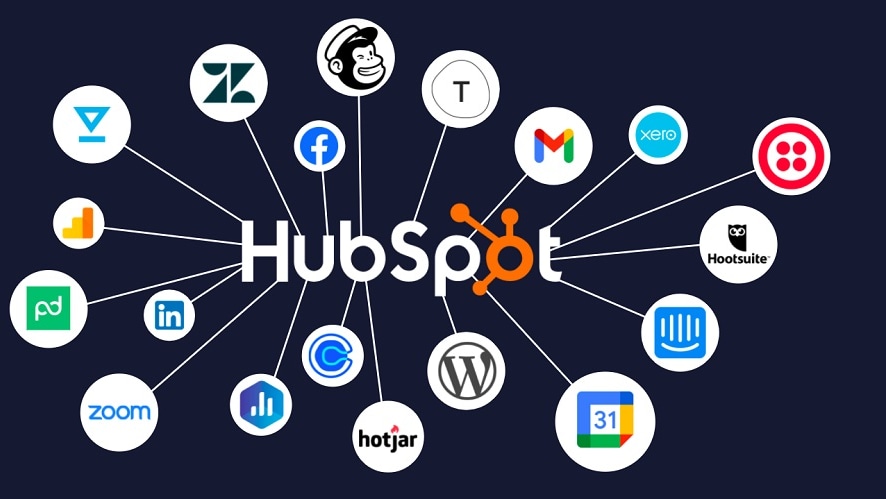
When it comes to integration capabilities, HubSpot unquestionably leads the way. As a platform initially crafted for inbound marketing, HubSpot has cultivated a vast ecosystem of integrations. Boasting a portfolio of over 200 partner apps, businesses can seamlessly connect with popular software like Salesforce, Shopify, and Google Workspace. This extensive range of integrations empowers marketers to centralize and automate their operations within a unified platform, streamlining their workflows and data management.
Conversely, while Zendesk does offer a considerable number of integrations, its primary focus remains on enhancing its core service—customer support. Consequently, its partner apps predominantly revolve around customer service-oriented tools, which, while beneficial, do impose certain limitations on its versatility when compared to the broader integration possibilities offered by HubSpot.
Zendesk Provides Better Multichannel Support than HubSpot

While Zendesk and HubSpot both extend support across various communication channels, Zendesk distinguishes itself through its extensive and robust multichannel support capabilities. While HubSpot does offer support through email, social media, and various outreach methods, it notably does not highlight support for channels like phone and web forms, which are among the array of options Zendesk provides.
Opting for Zendesk equips businesses with the flexibility to engage with their customers across a comprehensive spectrum of platforms, accommodating customers based on their preferences and convenience. This holistic approach to multichannel support has the potential to significantly enhance customer satisfaction, as it ensures that businesses can effectively reach and assist their customers across the diverse range of communication channels they prefer to use.
HubSpot Outshines Zendesk in Lead Scoring and Segmentation

While Zendesk is renowned for its power in customer service and ticketing, it does not provide a feature as specific as lead scoring and segmentation, which HubSpot offers. HubSpot's capabilities in this area involve assigning scores to leads based on their behavior and engagement, as well as segmenting contacts for finely-tailored marketing campaigns. This functionality empowers businesses to not only identify but also concentrate their efforts on the most promising leads.
HubSpot's lead scoring and segmentation mechanisms serve as powerful tools to streamline sales efforts and improve conversion rates significantly. By prioritizing leads with higher scores and targeting them with personalized marketing initiatives, businesses can optimize their sales processes, cultivate valuable relationships, and ultimately drive more successful conversions.
Zendesk and HubSpot Provide Equally Robust Automation and Workflow Capabilities
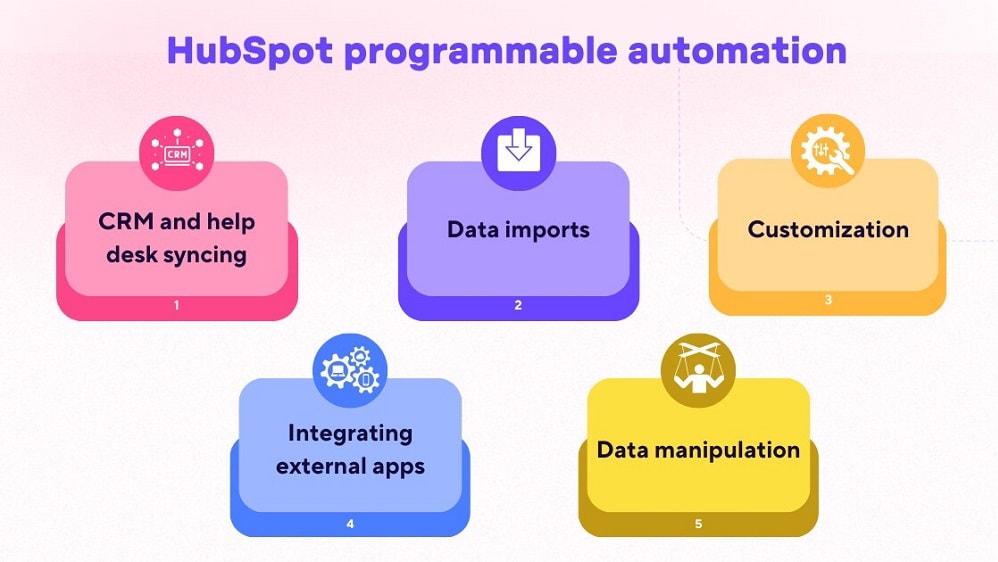
Both Zendesk and HubSpot boast robust automation capabilities that significantly enhance workflow efficiency. In Zendesk, these capabilities manifest through predefined rules that intelligently route tickets to the most appropriate agents, automated responses to common inquiries, and escalation systems to ensure timely issue resolution.
On the other hand, HubSpot's automation prowess extends to automating repetitive tasks across various domains, including scheduling and publishing social media posts, orchestrating marketing campaigns, and sending transactional emails. These automation tools streamline operations, reduce manual workloads, and allow teams to allocate their resources more effectively.
In summary, both Zendesk and HubSpot offer similar automation tools geared towards augmenting productivity and efficiency within their respective domains, making them valuable assets for businesses aiming to streamline their operations and provide enhanced customer experiences.
Zendesk Excels at Customer Engagement Compared to HubSpot

While Zendesk and HubSpot both provide tools for customer engagement, Zendesk elevates this aspect with its proactive live chat and messaging capabilities, allowing businesses to offer immediate assistance when it's most needed. While HubSpot offers valuable features such as sales email tracking and templates for personalized outreach, Zendesk's real-time interaction capabilities can make a substantial difference in enhancing customer engagement and satisfaction.
Zendesk's proactive approach enables businesses to be more responsive and accessible to their customers, fostering a sense of care and attentiveness. Real-time chat and messaging can be instrumental in resolving issues swiftly and providing valuable information at the moment of inquiry, contributing to a more positive customer experience.
Zendesk Pulls Ahead Ahead of HubSpot for User-Friendliness

When evaluating the user-friendliness of Zendesk and HubSpot, it becomes evident that both platforms aim to deliver a smooth and efficient experience. Nonetheless, Zendesk takes a notable lead with its highly intuitive interface, meticulously crafted to simplify even the most intricate customer service tasks, catering to users of all technical proficiencies. The well-organized dashboard, straightforward navigation, and streamlined ticketing system empower support teams to swiftly and effectively address customer inquiries.
Conversely, while HubSpot offers a clean and user-friendly interface, some users have reported encountering a steeper learning curve. Its extensive array of features, while impressive, can occasionally pose a challenge to users who haven't undergone comprehensive training or onboarding. Navigating the depth of HubSpot's capabilities may require a bit more time and expertise.
Subscribe to our newsletters.
No FOMO here. Stay up-to-date on all the latest deals and news with our monthly newsletter straight to your inbox like 127,000+ entrepreneurs (+ Get 10% off on on our Premium Membership!)
Zendesk vs HubSpot: Which is the best for your business?
Zendesk is the best tool for you if:
- You prioritize efficient customer support and ticket management. Zendesk’s comprehensive suite of customer support tools empowers you to manage and resolve customer inquiries swiftly and effectively.
- You need a versatile platform for streamlined customer service operations, with a wide range of features and integrations that cater to various customer support needs.
- You seek a robust ticketing system and support tools, allowing you to categorize, prioritize, and efficiently handle customer requests.
- You value an intuitive interface for user-friendly operations, accessible to users of all technical backgrounds.
- Your focus is on managing customer inquiries and enhancing support experiences, delivering exceptional customer support and creating seamless support experiences for your customers.
HubSpot is the best tool for you if:
- You want an all-in-one platform for marketing, sales, and customer service to streamline your customer relationship management.
- You seek powerful marketing automation features to nurture leads and drive conversions with personalized campaigns.
- You require a comprehensive sales solution with lead scoring, email tracking, and efficient sales pipeline management.
- You value an integrated approach to customer engagement, allowing you to align marketing, sales, and support efforts seamlessly.
- You prioritize data-driven decision-making with in-depth analytics and reporting across all customer-facing functions.
Alternatives to Zendesk & HubSpot
Promotions on AI Customer Support software
Start saving on the best SaaS with Secret.
Secret has already helped tens of thousands of startups save millions on the best SaaS like Zendesk, HubSpot & many more. Join Secret now to buy software the smart way.

